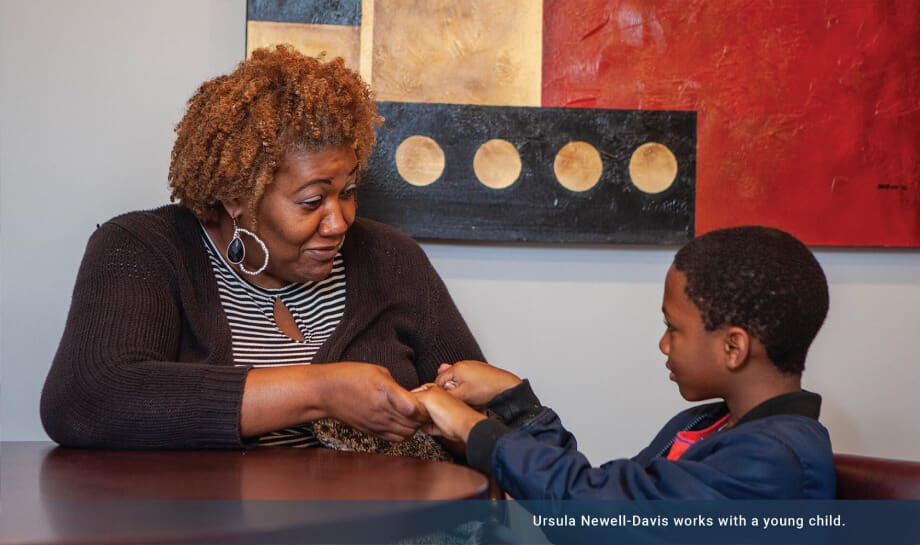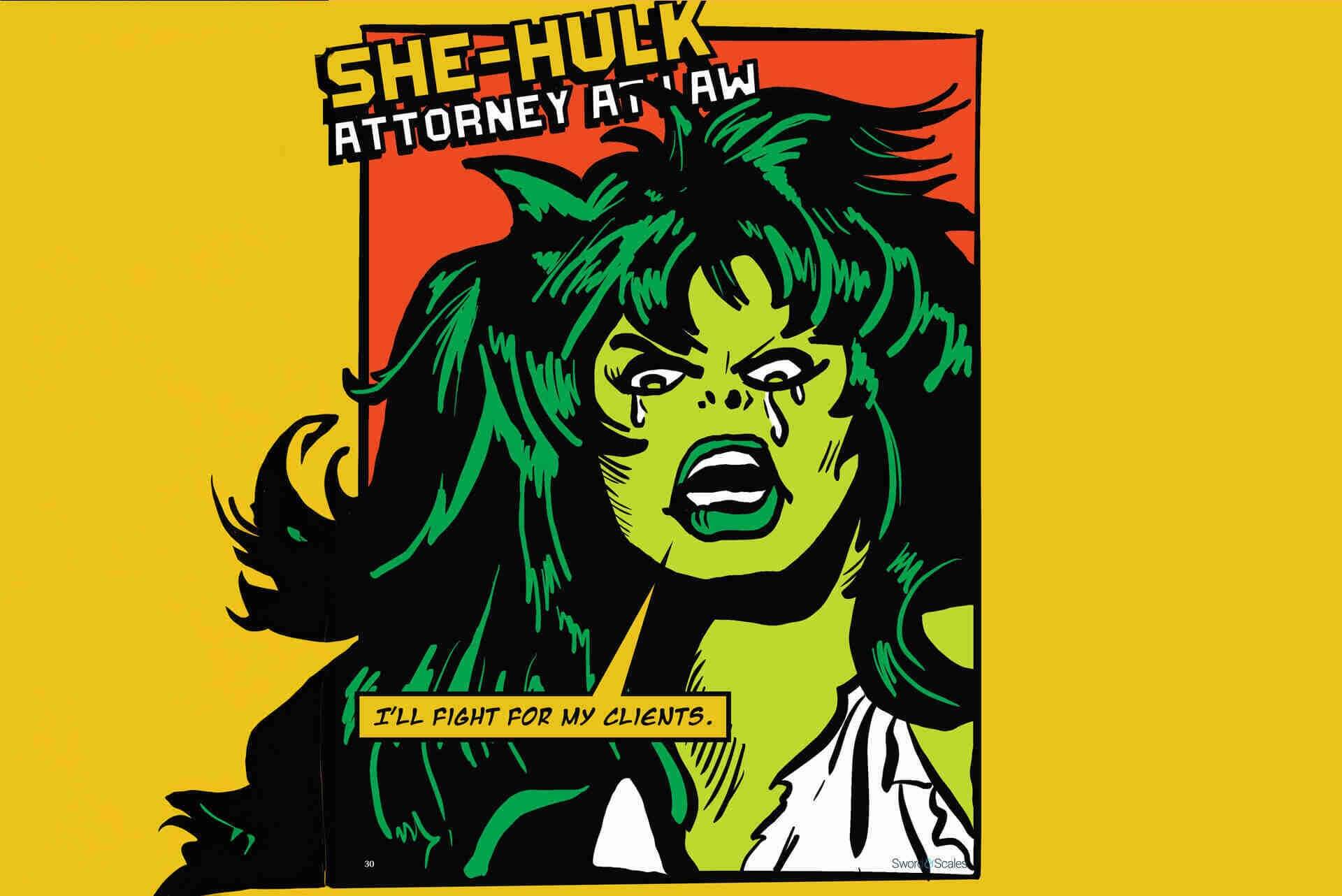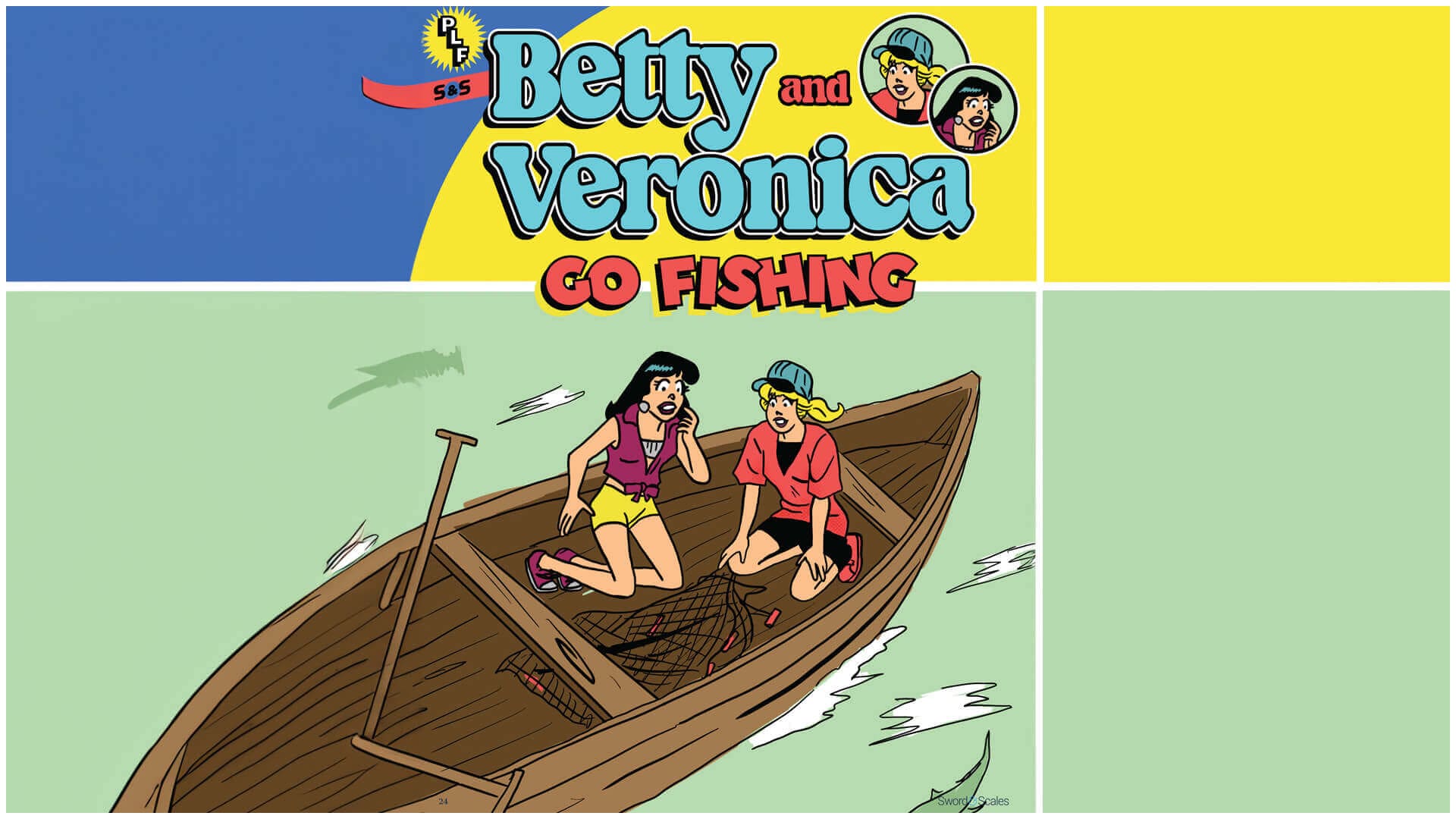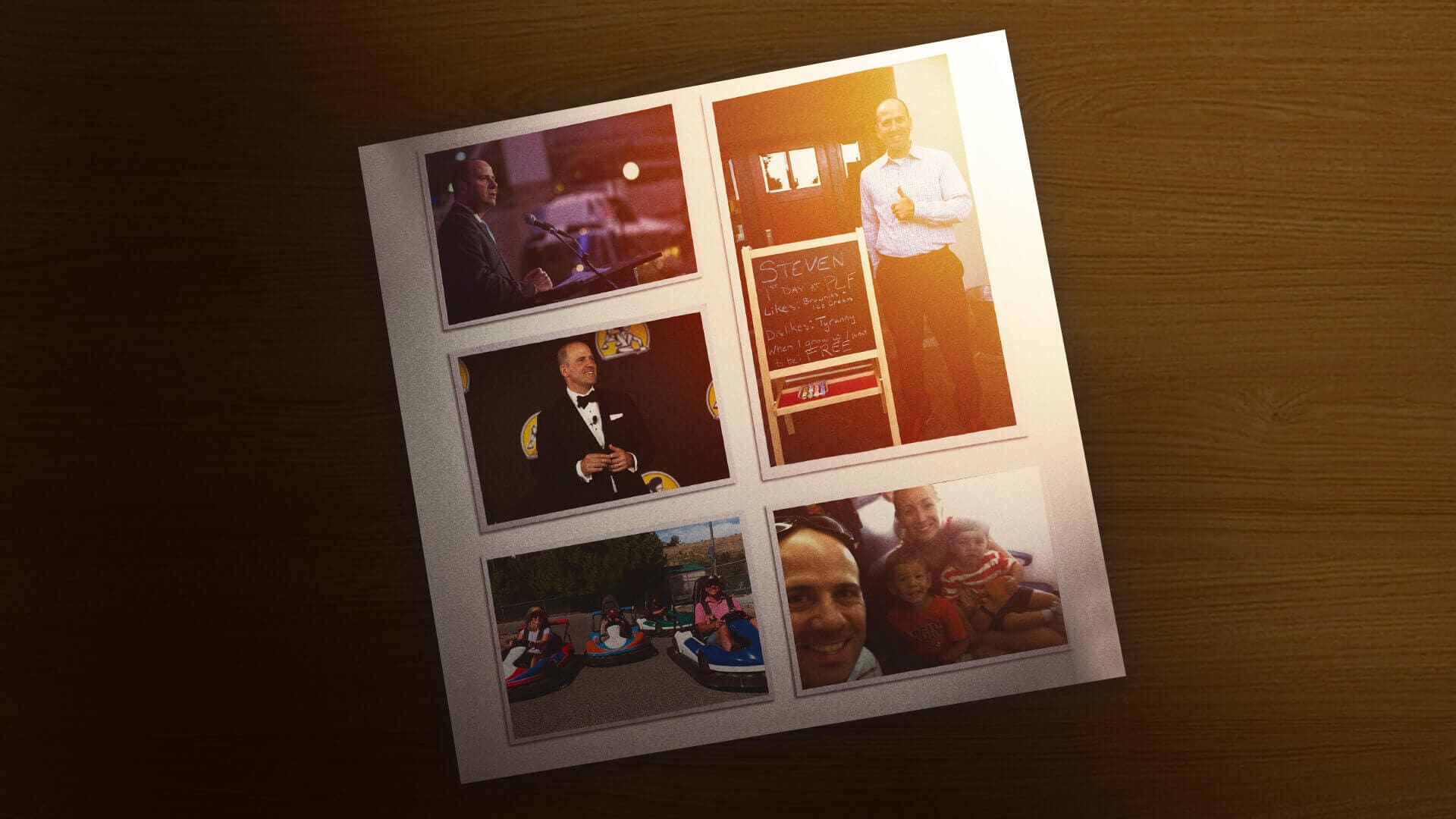“FROM THE TIME MY SON WAS BORN, I knew he needed help.”
That’s what Dana, a New Orleans mother, admits in a signed declaration that recently was submitted to the Supreme Court.
Dana’s son displayed concerning behavior from a very young age. It was a lot for Dana to handle—and she also had two other children. She reached out to services that provide “respite care”: part-time help for parents and other caregivers who need occasional breaks. Respite care is a game changer for parents of special needs children. A good respite caregiver can make a struggling mom feel like she’s not alone.
But the services Dana found in New Orleans only added to her anxieties. “They treated my son like a number in the system,” she says. “They downplayed my concerns and observations and were insistent that my son had a simple form of ADHD.”
Meanwhile, her son’s behavior escalated to a point where Dana was unable to keep a job. “I lost everything and had to move into my mother’s home with my children,” she says. “I reached a point of such emotional and financial desperation that I considered giving my son up for adoption.”
It was, she says, “an unimaginable choice for any mother.” She was in “complete emotional anguish.”
Then, when her son was seven years old, Dana met Ursula Newell-Davis.
A Woman Trying to Save Her Community
URSULA IS A NEW ORLEANS social worker—but she’s more than that.
“People like her only come around once in your life,” says Makela, a recovering drug addict whose daughter was counseled by Ursula.
Ursula believes she has a calling: to work face-to-face with families and make a positive impact in their lives. She herself is a mother of three. One of her sons, L.J., is autistic. Her oldest son, Charles, was killed in 2015 in a drive-by shooting while visiting family in Washington, DC. Charles’ murder made Ursula think about the people who shot him: What if someone had intervened early in their lives?
Ursula can’t provide services to in-need families because the government doesn’t want the added work of regulating her business.
As a social worker, Ursula has seen teenagers with disabilities or behavioral problems fall into the wrong crowd and turn to crime. (According to the Office of Juvenile Justice and Delinquency Prevention, almost 70% of juvenile criminal offenders have at least one diagnosed mental illness.)
Dana says that Ursula saved her family.
When Ursula started working with Dana and her son, she sat down and listened to both of them. Dana felt like, for the first time, someone understood the complexity of her son’s case. Ursula accompanied them to appointments and guided Dana to resources. She even helped Dana’s other children.
“The fact that my son can live a stable life and my oldest daughter is now enrolled in medical school is a testament to Ms. Davis’ work,” Dana says.
Dana’s signed declaration is part of an appendix that was submitted to the Supreme Court in June. Pacific Legal Foundation is representing Ursula in a lawsuit against the State of Louisiana, with local help from the Pelican Institute for Public Policy. Ursula has been trying to open her own business providing respite services to parents like Dana—but the Louisiana Department of Health says no.
Louisiana Law
IN LOUISIANA, BEFORE you can get licensed to provide respite services, you must undergo something called a Facility Need Review (FNR). Four bureaucrats decide whether your services are needed in the community. During discovery, the state admitted it has no standards for deciding what level of services are needed, and no system for measuring the purported need.
Ursula was able to provide testimony about the need for more respite services in New Orleans. But the FNR committee still denied her application—because allowing Ursula to provide respite services would add to the Department of Health’s “regulatory burden,” it said.
In other words: Ursula can’t provide services to in-need families because the government doesn’t want the added work of regulating her business.
PLF and Pelican Institute now are asking the Supreme Court to review Ursula’s case. Denying a qualified person her right to earn a living cannot be the best way for Louisiana to conserve its resources. A state could use that justification to deny anyone virtually anything. “[A]rbitrarily discriminating between parties or depriving them of their constitutional rights can always be said to conserve governmental resources in some way,” our petition to the Court says. For example,
If there were fewer restaurants, the government could spend less on inspections. If there were fewer drivers, the government could spend less on roads, or DMV workers, or highway patrol. The way the government ensures health and safety is by enforcing health and safety regulations, not by limiting the number of qualified people who can lawfully
exercise their rights.
The petition also argues the Supreme Court should take Ursula’s case to make the freedom to earn a living central to civil rights law.
A proper reading of the Fourteenth Amendment prevents any state from abridging fundamental rights, including the right to work in a common and lawful occupation. There’s vast historical evidence that the amendment’s Privileges or Immunities Clause (“No State shall make or enforce any law which shall abridge the privileges or immunities of citizens of the United States…”) was meant to enshrine the right to earn a living into the Constitution. It was ratified in 1868, after the Civil War, when Congress’ priority was to protect the economic rights of former slaves. At the time, “privileges” and “immunities” were broadly used to refer to natural rights and liberties. Congressman John Bingham, one of the authors of the amendment, spoke of the liberty “to work an honest calling and contribute by your toil in some sort to the support of yourself[.]” During debates over the amendment, Congressman William Lawrence said:
It is idle to say that a citizen shall have the right to life, yet deny him the right to labor, whereby alone he can live. It is a mockery to say that a citizen may have a right to live, and yet deny him the right to make a contract to secure the privilege and the rewards of labor.
But five years after the Fourteenth Amendment was ratified, the Supreme Court made a grave mistake that robbed the Privileges or Immunities Clause of its meaning.
That mistake: the Slaughter-House decision of 1873.
The Slaughter-House Decision
LIKE URSULA NEWELL-DAVIS’ story, Slaughter-House begins in New Orleans.
In the late 1860s, the State of Louisiana handed a monopoly over the right to run a slaughterhouse in New Orleans to one company for twenty-five years. All butchers in the city would be forced to rent workspace at its slaughterhouse.
The state did have legitimate health reasons to regulate the butcher industry: New Orleans’ drinking water was contaminated with bits of blood and offal from upstream slaughterhouses. But instead of narrowly tailoring a solution to the problem—banning slaughterhouses from certain upstream areas of the city—Louisiana legislators decided to go along with the scheme to create a monopoly. (It helped that several of the schemers pushing for the monopoly were friends with Louisiana’s 26-year-old governor—and it also helped that they bribed several legislators.)
Akhil Reed Amar, a law professor at Yale University, describes Slaughter-House as “strangling the privileges-or-immunities-clause in its crib.”
New Orleans butchers were furious. Most of them were French immigrants; they lacked political ties. Now, if they wanted to continue butchering livestock, they’d have to give up some of their earnings to the new monopoly company. The Butchers’ Benevolent Association protested that every man had the right “to accumulate property by his labor… without the control, domination, or direction of any other person or persons in the community[.]”
The butchers filed a series of lawsuits which were eventually consolidated at the Supreme Court as the Slaughter-House Cases. The butchers’ attorney argued that Louisiana’s creation of a slaughterhouse monopoly violated the Privileges or Immunities Clause of the Constitution’s new Fourteenth Amendment. Clearly, the butchers’ fundamental right to earn a living was being abridged, the lawyer told the Court.
But in a controversial 5-4 decision, the Supreme Court ruled that “privileges or immunities” applied only to certain federal rights, like access to navigable waters and habeas corpus. It didn’t protect “the citizen of a state against the legislative power of his own state,” the Court’s majority opinion said.
It was a puzzling decision that effectively stripped the clause of all its intended power. After the Civil War, Southern legislatures passed “Black Codes” and other labor regulations aimed at keeping formerly enslaved persons in effective servitude. The predominant purpose of the Fourteenth Amendment was to give federal authorities the power to stop state governments from abusing the rights of their own citizens.
In a dissent, Justice Stephen Field wrote that the Court’s decision turned the Privileges or Immunities Clause into “a vain and idle enactment, which accomplished nothing, and most unnecessarily excited Congress and the people on its passage.”
Freedom of Opportunity
TODAY, CONSTITUTIONAL SCHOLARS and jurists of all political and ideological stripes agree with Justice Field: The Slaughter-House decision was a mistake. Akhil Reed Amar, a law professor at Yale University, describes Slaughter-House as “strangling the privileges-or-immunities-clause in its crib.” Laurence Tribe, a law professor at Harvard University, accuses the Court of “improperly gutting” the Fourteenth Amendment. Thomas McAffee, author of Constitutional Interpretation, calls Slaughter-House “one of the few important issues about which virtually every modern commentator is in agreement.”
Ursula Newell-Davis’ case affords the Supreme Court an opportunity to overturn its Slaughter-House decision and restore the Fourteenth Amendment to its intended purpose. It’s a long shot, admittedly. The Court has avoided revisiting Slaughter-House thus far. But in recent years, several Justices (and a growing number of lower-court judges) have openly acknowledged that the Privileges or Immunities Clause was written out of the Constitution by Slaughter-House.
Ursula is giving the Court a compelling reason to fix its 150-year-old mistake.
Every American deserves freedom of opportunity: the freedom to choose from the virtually infinite ways a person can earn a living. That’s the lifeblood of a free society. It’s what allows for grand-scale innovations that transform society across the globe, and it’s also what allows for the millions of smaller transactions happening every second, each of which might make a single person’s life just a little bit better.
If the State of Louisiana lets her, Ursula will make many families’ lives better.

She’ll provide a service that her community desperately needs. In another declaration submitted in Ursula’s case, a New Orleans foster mother describes struggling with existing respite services, which sent a different worker every time she called. Her foster child had cognitive and behavioral issues. The mother planned to adopt and began proceedings for a voluntary transfer of custody from the biological parents; but after failing to find consistent respite services, the mother ended up losing multiple jobs. She made the devastating decision not to adopt the child.
A state barrier is the only thing preventing Ursula from working with parents like this. One hundred and fifty years ago, in the same city Ursula calls home, a state barrier was the only thing preventing French butchers from doing their job.
Plus ça change.
In a short documentary from Stand Together, Makela tells filmmakers that her daughter’s grades rebounded after working with Ursula.
“The state really needs to open its eyes and listen to her,” Makela says. “Because she has a lot to say. And she has a lot of help to give.”





